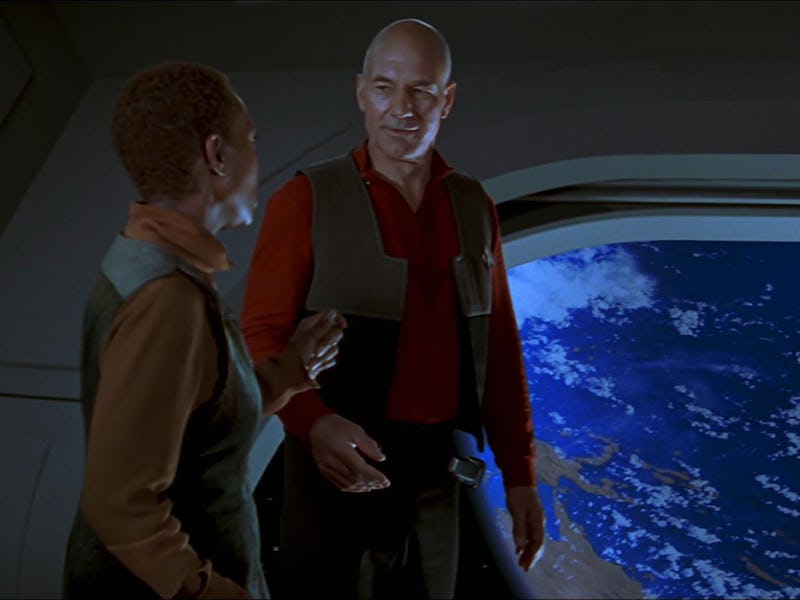How Warp Drive Makes Money Totally Obsolete in ’Star Trek'

In Star Trek IV: The Voyage Home James T. Kirk can’t pay for pizza because there isn’t money in the 23rd century. And now, it looks like the invention of faster-than-light travel itself is the reason why. In Star Trek, the economics of the 23rd and 24th centuries are probably altered by our reliance on amazing technologies.
It all comes down to “space-time compression” and the effect it could have on the use of money in Star Trek as explained in a recently published article by Carl Bozman and Tom Jeannot. Bozman and Jeannot posit that the concept of space-time compression, or, reducing the distance between objects through advancements in technologies — like communication and transportation — is “taken to its limit” in Star Trek. And, in approaching that limit, this creates a society where abundance is the rule and the need for capital is eliminated because scarcity is all but eliminated.
“After warp drive and First Contact are achieved, human beings almost immediately face few resource constraints and find themselves engaged in common purpose,” write Bozman and Jeannot. “The results: poverty, disease, and war essentially disappear as the people of earth unite and prepare to move beyond the solar system.”
Bozman and Jeannot go on to point out the similarities between Marx’s concept of a post-capitalist society and the apparent realities of the Federation’s society a few hundred years in the future, using Marx’s idea of “the cooperative society based on common ownership of the means of production.”
The heart of the idea is that with technologies like warp drives, replicators, and vastly improved communication, the future did away with a great many financial quandaries that have plagued us for the bulk of human existence. These technologies compressed space-time, allowing us to communicate, travel, and produce goods more quickly and cheaply than ever before, and in doing so, created an abundant society where wealth is no longer measured by stockpiles of money.
As Picard says in Star Trek: First Contact, “The economics of the future are somewhat different. You see, money doesn’t exist in the 24th century. … The acquisition of wealth is no longer the driving force in our lives. We work to better ourselves and the rest of humanity.”
Star Trek’s vision of the future — initially incepted by Gene Roddenberry — was one where technology created a society in which people weren’t ruled by the dollar or by the need to labor for money to buy into systems of commercial exchange, but by the shared burden of improving life for everyone in the Federation. Is that future possible? We’ll be sure to let you know when the 24th century rolls around.